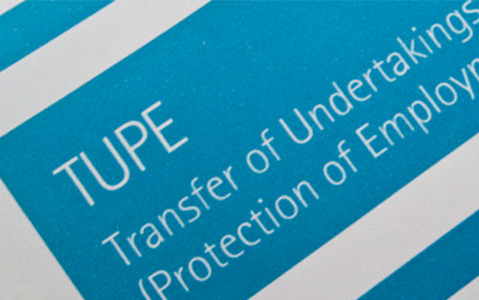When your charity is going through a restructure, you will have one hundred things on your to do list.
One of the most important is thinking about what happens to any new staff that are coming on board.
For example, if you are tendering for a contract to provide services and the contract involves providing services which are already in place, you will be required to take on another employer’s employees who had previously been involved in the service delivery.
In these types of situations, you may find your charity needs to follow the rules set out in the Transfer of Undertakings (Protection of Employment) Regulations, commonly known as TUPE. These Regulations essentially protect an employee’s rights when the organisation they work for or the commercial contract they are working on changes ownership.
What is the effect of TUPE?
The main premise behind TUPE is that the new employer steps into the shoes of the old employer therefore the outgoing employer’s rights, powers, duties and liabilities under or in connection with the employees’ contracts are transferred to the incoming employer.
Employees will retain their employment terms and conditions. This not only includes the terms and conditions in their contract but also the Employee Handbook, any enhanced terms and any collective agreements. For some charities, this can be very costly, particularly if the employees were previously engaged on generous public sector terms and conditions.

What duties are imposed on employers when preparing a transfer?
When preparing for a TUPE transfer, both the outgoing contract provider and the incoming contractor have a duty to inform and consult elected representatives about the transfer. If there is a recognised union then this can be the elected representative. If not, then an employee can be an elected representative. Find out more here.
What happens if you want to change the employee’s contracts?
The incoming employer may wish to amend the employees’ contracts to harmonise their contracts with those of exiting employees. However, they cannot change employees’ terms and conditions unless this is expressly allowed in the contract, is unconnected with the transfer or where, it is for a reason connected with the transfer, there are economic, technical or organisational (ETO) reasons for the change that involve changes in the workforce. The latter essentially means where there is a redundancy situation or a functional job change.
Jane Hallas, Head of WorkNest's Charities Team
Three warnings for all charities:
- A failure to adhere to the duty to inform or consult can result in protective awards made against the employer.
- It will be considered an automatic unfair dismissal if the reason for the dismissal is the transfer itself unless the dismissal is as result of an ETO reason, for example if the employer can show that there is a genuine redundancy situation and they have followed a fair procedure.
- Handling changes to employees’ contracts after a TUPE transfer is extremely complex and should be handled with extreme care. Make sure you have obtained legal advice from the Employment Law Helpline to avoid common pitfalls and ensure that you do not face legal action.
Jane Hallas, Head of WorkNest’s Charities Team, comments: “As TUPE is complex, advice should be sought at the earliest stages to ensure you comply with your legal obligations. Some smaller charities may benefit from the exemption regarding the need to inform and consult representatives if they have fewer than ten employees in total”.





